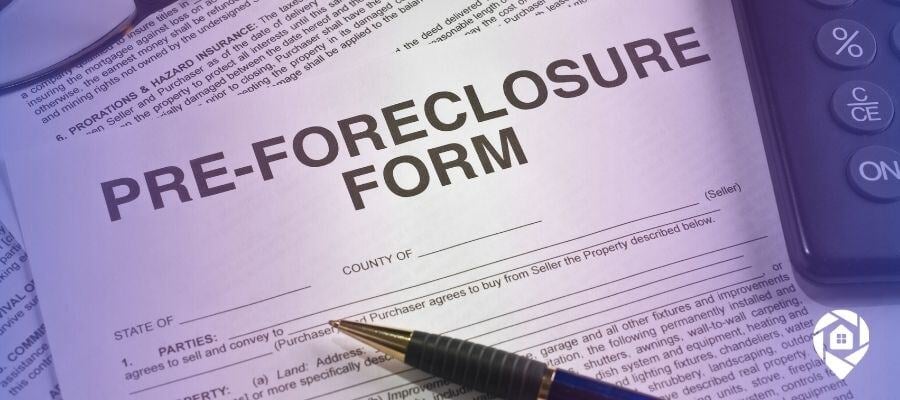
Unlocking Pre-Foreclosure Investment: A Comprehensive Guide

What kind of properties should you look at when starting investing? Well, finding properties with a motivated seller is key. One of those motivating factors is if a property is in preforeclosure.
Pre-foreclosure is one such term that often leaves many scratching their heads. What does it mean, how does it come about, and most importantly, how can you leverage it as a real estate investor? This comprehensive guide will delve into all these aspects and more.
What is Pre-Foreclosure in Real Estate?
Pre-foreclosure is a state in the home financing process. In simple terms, it refers to the period when a borrower has defaulted on their mortgage payments, and the lender has begun the legal process to repossess the property, but the foreclosure sale has not yet taken place. This period provides both the homeowner and potential real estate investors with unique opportunities.
The Journey to Pre-Foreclosure
To understand pre-foreclosure better, we need to take a look at the events that led to this situation. It all starts when a homeowner fails to make consistent mortgage payments. This failure triggers a series of steps initiated by the lender to recoup their money. Here is a brief outline of this process:
- The homeowner misses one or more mortgage payments
- The lender issues a notice of default
- The homeowner enters into the pre-foreclosure stage
- If the homeowner cannot rectify the default, the property goes to a foreclosure sale
Finding Pre-Foreclosure Properties
In the world of real estate investing, pre-foreclosures represent a potential goldmine for savvy investors. Whether you want to wholesale real estate or buy and hold the property. However, finding these properties isn't always straightforward. So, how do you identify a pre-foreclosure property?
You can start by checking the local county courthouse or the county's website to find a list of properties in pre-foreclosure. Some real estate investors also subscribe to local newspapers, as notices about pre-foreclosure properties are often published there.
You can also use software or platforms to pull lists of properties meeting the criteria you want. In DealMachine, you can pull a list of preforeclosure properties. Also, if you are looking for other motivating factors you can add those into your filter for the list. For example, if you only want multi-family properties that have entered preforeclosure you can add those filters and pull a list in your specified area.
While software like DealMachine costs money versus just finding it through public records, it saves you a considerable amount of time. That trade-off might be worth it to you to be able to work more efficiently.
Legal Aspects of Buying Pre-Foreclosure Properties
Purchasing a pre-foreclosure property isn't as straightforward as other real estate transactions. There are several legal aspects you must be aware of:
- The homeowner still owns the property during pre-foreclosure. You will need to negotiate directly with them, not the lender.
- You will need to ensure that the homeowner isn't just selling to stall the foreclosure but can deliver a clear title to the property.
- You will need to ascertain if there are any liens or unpaid taxes on the property. These can significantly complicate the transaction and potentially increase your costs.
Adopting the Right Mindset: Navigating Seller Interactions
Embarking on pre-foreclosure investment requires more than financial acumen; it demands a psychological readiness to handle sensitive negotiations. Sellers in distress are facing emotional upheaval, and a perceptive investor understands that an empathetic approach often paves the way for smoother interactions and successful deals.
Develop a problem-solver mindset. When you approach homeowners, come prepared with a few strategic options that could benefit both parties. Tailor your proposals to their circumstances — perhaps a lease-back arrangement or a subject-to agreement that allows them time to reorganize their lives.
Listen more than you speak. Understand their story, fears, and expectations before proposing solutions. This trust-building process can make sellers more receptive to your offer, even if it isn't the highest on the table.
Lastly, maintain ethical boundaries. Transparent dealings not only protect you legally but enhance your reputation in the community, potentially leading to more investment opportunities through word-of-mouth. In the delicate terrain of pre-foreclosures, compassionate negotiation is as crucial as the figures in your spreadsheet.
Conclusion
Focusing on pre-foreclosures can be a smart move in the realm of real estate investing. It gives you an opportunity to purchase properties below market value and earn strong returns.
Furthermore, by helping homeowners avoid the damaging effects of foreclosure on their credit history, you could position yourself as a vital solution provider in a challenging time. Remember to use accurate and timely property data to make informed decisions, and always keep your finger on the pulse of the ever-changing world of real estate.

About Samantha Ankney
Samantha is the Social Media Manager at DealMachine, where she oversees all social media strategies and content creation. With 4 years of experience at the company, she originally joined as a Media Specialist, leveraging her skills to enhance DealMachine's digital presence. Passionate about connecting with the community and driving engagement, Samantha is dedicated to sharing valuable insights and updates across all platforms.



